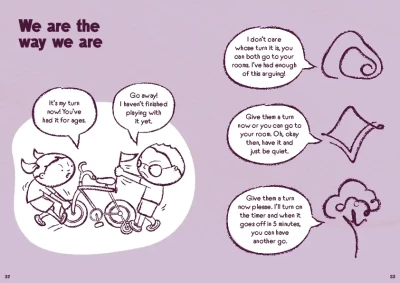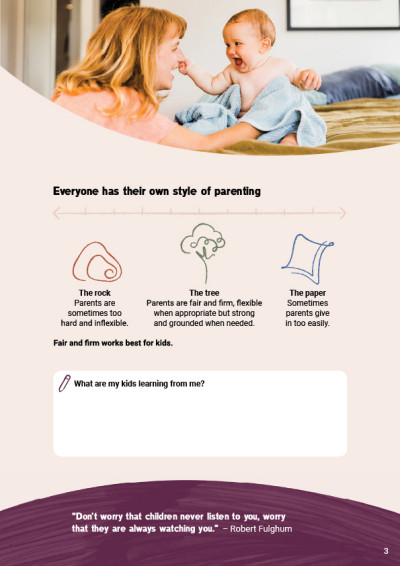
Taking turns
Taking turns is a skill that develops over time. Young children can find sharing a challenge. Children learn about taking turns when their whānau model the behaviour and talk gently but clearly.
It starts early
Whether they realise or not, whānau will have been gradually working on taking turns since their child was a pēpi.
Remember the early days of face-to-face talking with pēpi and copying the sounds they made? And when they were sitting up and we played by rolling the ball back and forwards with them? That’s all about helping help young children learn about taking turns.
A developing skill
A secure attachment is the foundation for getting on with others. Sometimes we have high expectations for sharing when in fact pēpi is at the stage of just wanting to play alongside others, rather than engaging fully with them.
Like other skills, being able to share and take turns develops over time. What helps this skill to develop is when whānau model the behaviour and talk with the child, gently but clearly. Simple things like saying out loud to the child, ‘Here’s the bike. Your turn now’, or ‘My turn to kick a goal’.
By the time they’re 3, most children are beginning to understand about taking turns and sharing and what the idea of ‘fair’ means.
Try an activity
Ball play
Throwing, rolling and kicking balls strengthens big and small muscles and supports coordination. Whether you buy or make the balls, tamariki can practice turn-taking and learn about ‘rules’ as they cooperate with whānau.
Challenges with sharing
Let’s have a look at some ideas in Whakatipu Te Māhuri, pages 32 and 33. In this cartoon the tamariki are finding it hard to share the bike. On the next page, we’re reminded of the 3 parenting styles – rock, paper and tree – and how each might be used in this situation.
The ‘tree’ parent talks clearly and politely: ‘Give them a turn now please. I’ll turn on the timer and when it goes off in 5 minutes, you can have another go.’ This simple action helps their tamaiti know that they will get the bike back and it will be their turn in 5 minutes. Giving a definite time helps.
There are lots of opportunities to help tamariki learn about sharing and waiting their turn. These other resources below suggest a number of tips and strategies too.
Parenting styles
Let’s have a look at some ideas in Whakatipu Te Māhuri, pages 32-33. In this cartoon, Maka and Heru are finding it hard to share the bike. On the next page, we’re reminded of the three parenting styles – rock, paper and tree – and how each might be used in this situation.
Maybe we could refresh our understanding of the ‘ rākau ’ or ‘tree’ style that we find in the Takai booklet Thinking about parenting.
The rākau parent talks clearly and politely: ‘Maka, it’s Heru’s turn now, please.’ The next sentence then indicates a simple action that will help Maka know that she will get the bike back and it will be her turn in 5 minutes. Give a definite time.
Ask whānau:
- What other ideas could you use to help define the sharing time?
There are lots of opportunities to help children learn about sharing and waiting their turn. These other resources below suggest a number of tips and strategies too.
 pdf 11 MB
pdf 11 MB













